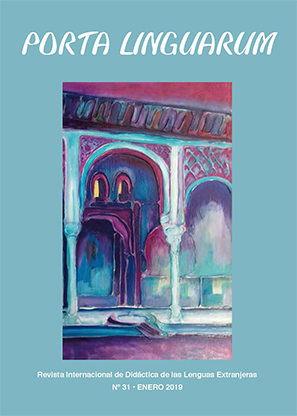La efectividad de la repetición: El caso de alumnos españoles de inglés como len-gua extranjera en Educación Primaria
DOI:
https://doi.org/10.30827/portalin.vi31.13819Resumen
Varios estudios han mostrado que repetir la misma tarea con diferente conteni-do, lo que se denomina repetición procedimental (RP), ayuda a prestar atención a la forma y al desarrollo sintáctico. Asimismo, la RP es común y apropiada para el aula. Este experimen-to investiga los efectos de la RP en la producción de 5 parejas de niños españoles (11 años) aprendiendo inglés como lengua extranjera en un colegio y con un nivel de principiante. Las parejas construyeron y narraron tres historias, una cada semana, siguiendo un procedimiento similar. El análisis de la complejidad, precisión y fluidez de sus narraciones muestra que la RP no tiene un impacto significativo en las narraciones de los estudiantes, excepto en el caso de la diversidad léxica, que mejora en la tercera narración. A la luz de los resultados, se discuten las posibilidades de la RP con niños.Descargas
Los datos de descargas todavía no están disponibles.
Descargas
Publicado
31-01-2019
Cómo citar
Lázaro Ibarrola, A., & VILLARREAL OLAIZOLA, I. (2019). La efectividad de la repetición: El caso de alumnos españoles de inglés como len-gua extranjera en Educación Primaria. Porta Linguarum Revista Interuniversitaria De Didáctica De Las Lenguas Extranjeras, (31), 7–20. https://doi.org/10.30827/portalin.vi31.13819
Número
Sección
Artículos [Número ordinario]



















